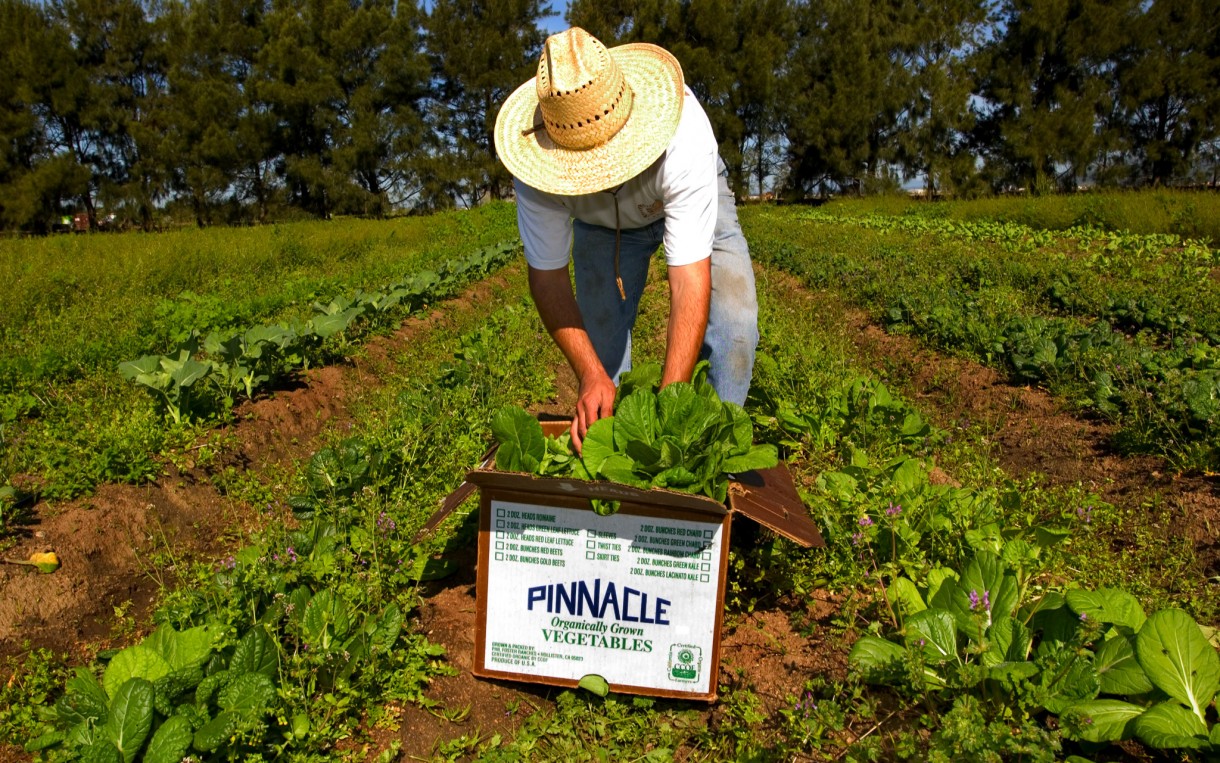Playing the trade game with US commodities
 Current US farm programs disproportionately favor commodity growers and provide higher payments for higher
production. Large farms gain over small farms, and commodity crops gain over diversified operations. This
system also shuts out producers of color, because of how programs are designed and a legacy of discrimination
with repercussions that continue today. Photo: Liliana Rodriguez/ Oxfam America
Current US farm programs disproportionately favor commodity growers and provide higher payments for higher
production. Large farms gain over small farms, and commodity crops gain over diversified operations. This
system also shuts out producers of color, because of how programs are designed and a legacy of discrimination
with repercussions that continue today. Photo: Liliana Rodriguez/ Oxfam America
Despite the fact that commodity growers in the US have it quite good in the global trade game, leveling the playing field for farmers in the developing world still seems to be a longshot.
It’s been a baseball-centric season for me. My team, the Kansas City Royals, is in the World Series (with one win under their belt!); and the hero of my little league days in the sixties, Yogi Berra, passed away. So when the House Agriculture Committee had a hearing on commodity subsidies, I couldn’t keep Yogi’s adage out of my mind: “It’s déjà vu all over again.”
And while the commodities represented at the hearing – sugar, cotton, soybeans, corn, and milk – may be in the big leagues of policy influence. It may be the “mid-major” voices that really hold the key to winning when it comes to making trade and markets fair.
Okay, enough baseball metaphors.
Listening to the hearing I felt like I was back in 2004, when commodity prices were at rock bottom, and US taxpayers were shelling out billions to keep cotton growers profitable even while producers in West Africa faced huge global surpluses and market disaster. US farmers of cotton, corn, soybeans, peanuts, and rice had a good deal. They could produce at a loss and be guaranteed price supports that kept their operations solvent and in some cases, quite profitable. Sugar and dairy had domestic supply controls and import quotas that protected them.
Now, 11 years later, we’ve seen significant reforms to US cotton programs. The changes– most for the worse – to the other commodity safety nets authorized in the 2007 and 2014 Farm Bills are making the big commodity groups shed crocodile tears about protectionism from the European and BRICSAM countries.
In his opening statement , House Agriculture Chairperson Michael Conway lamented that “our foreign competitors are undermining our trade agenda and, as we will hear in testimony today, cheating by foreign countries is also causing serious injury to our nation’s farmers and ranchers.”
Representing the National Cotton Council, President Gary Adams said, “For the U.S. cotton industry to sustain production and infrastructure into the future, it is imperative that production and trade policies in other countries not put U.S. farmers at a disadvantage.”
Iowa State University Pioneer Chair in Agribusiness, Dermot Hayes, was concerned that “several advanced developing countries like China, India, Turkey, and Brazil have structured their agricultural support programs in ways that lead their farmers to over-produce and subsequently deflate the price of some commodities on the world market, particularly for wheat, corn, and rice.”
One of the most powerful and revealing moments of the hearing came when Stacey Plaskett, delegate to the US Congress from the Virgin Islands asked a series of questions concerning the impact of trade distortion on cotton growers in Haiti and other less developed nations, and on actions protesting dumping of cheap American grain in those countries by the US. She asked, “Has the US government been supportive of protecting US markets and US industry when other countries attempt to use the WTO as a way to strong-arm US subsidies that the United States is able to provide?” The room was completely silent. After about ten seconds, she said, “I stumped you guys. I love it.”
Notably absent from the discussion was the question of how to create a safety net for US farmers that is not filtered through a commodity lens, or one that covers a certain amount of risk while giving farmers the flexibility to plant crops and care for their land based on both market signals and care for the environment.
And that is not the direction Congress went in the last Farm Bill when price supports for all the major commodities increased substantially – especially peanuts and rice. In addition, even small losses in production and revenue are now covered by supplemental insurance options and new revenue protection programs. According to a Congressional Research Service study, the 2014 Farm Bill “safety net shifts support away from … the WTO’s green/amber boxes and toward the blue/amber boxes, indicating a potentially more market-distorting U.S. farm policy regime.”
So despite the protestations of the commodity representatives over the actions of other countries, gaming and rigging the rules continues to take place in the US as much as it does in Europe and in the BRICSAM countries – and often completely ignores the interests of lesser developed nations.
The World Series would never be played well if each team had an opportunity to manipulate rules, or if the richest teams had the power to make the rules and buy the players that always guaranteed a win. In order to play the “big game” well, every person needs access to food and meaningful work. We don’t just need what Ranking Member Colin Peterson called a “level playing field” but a fair playing field for all.